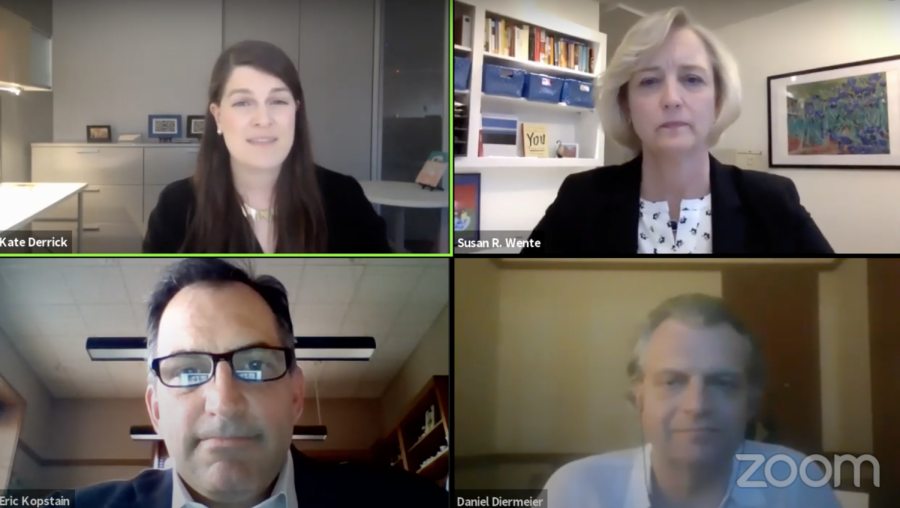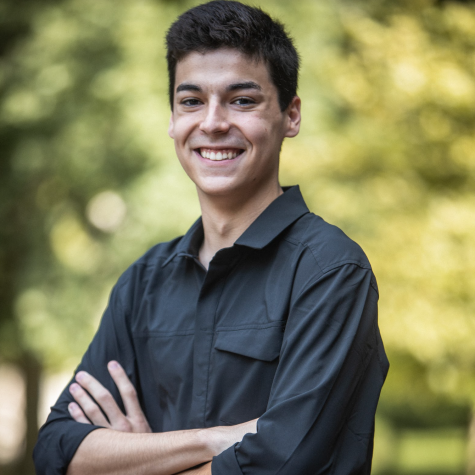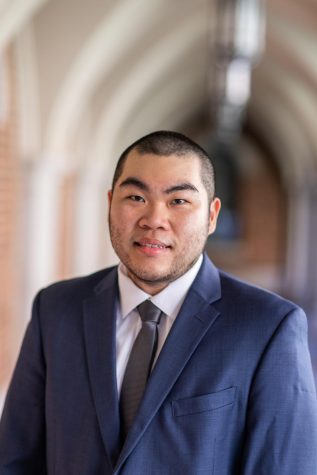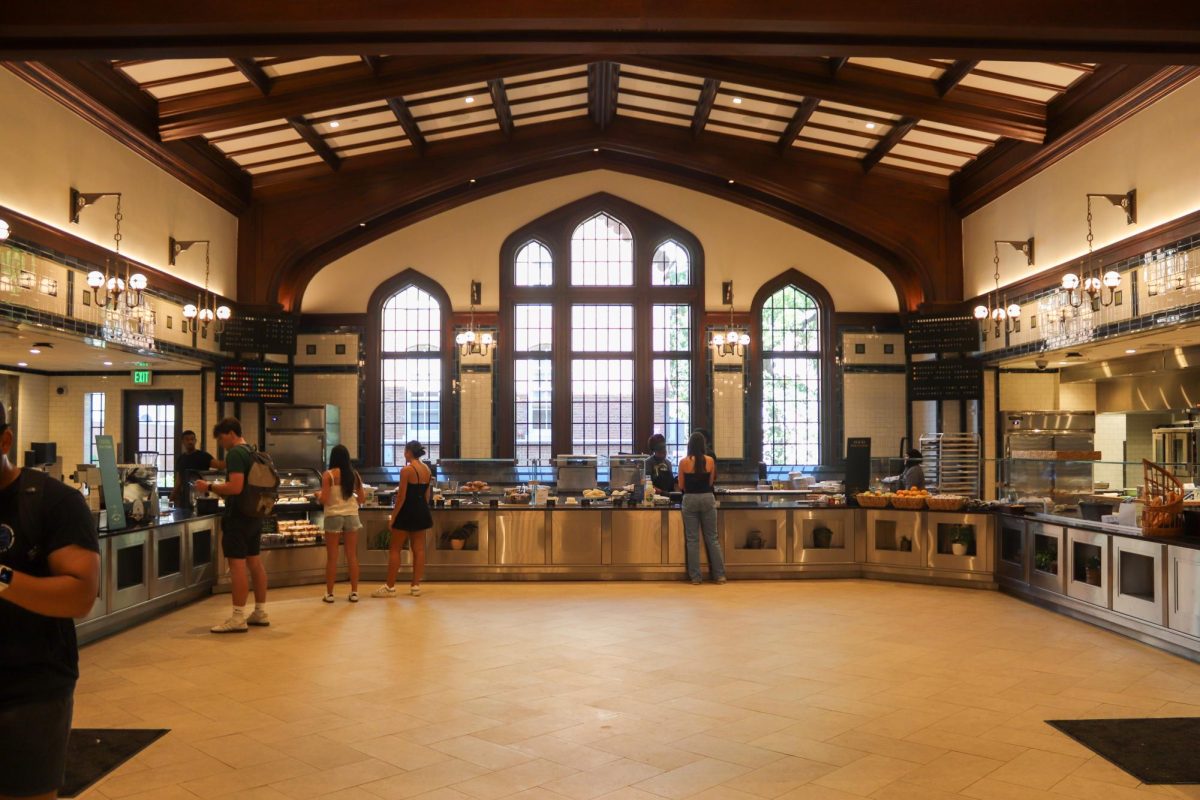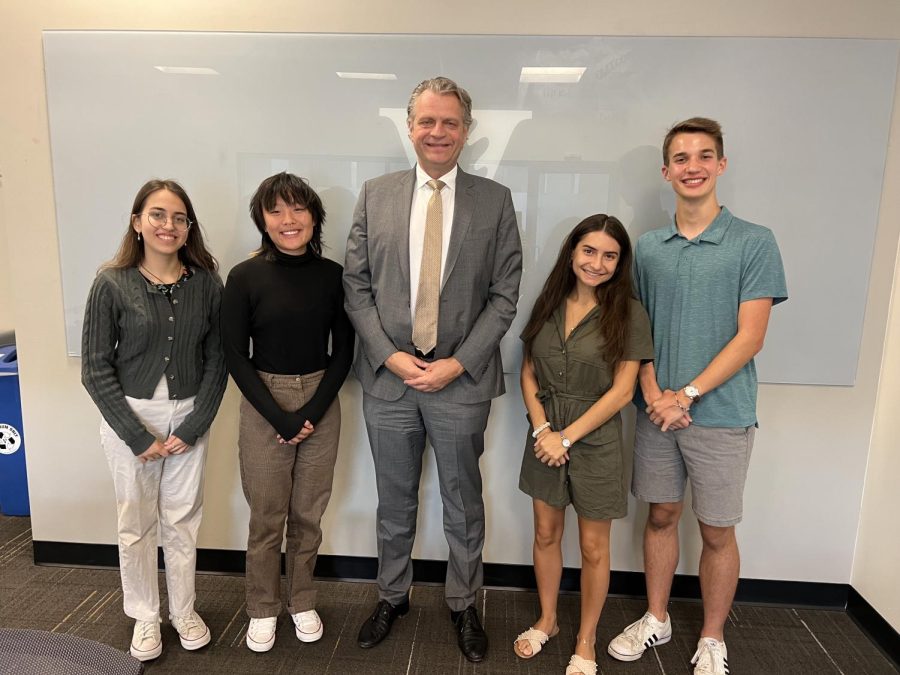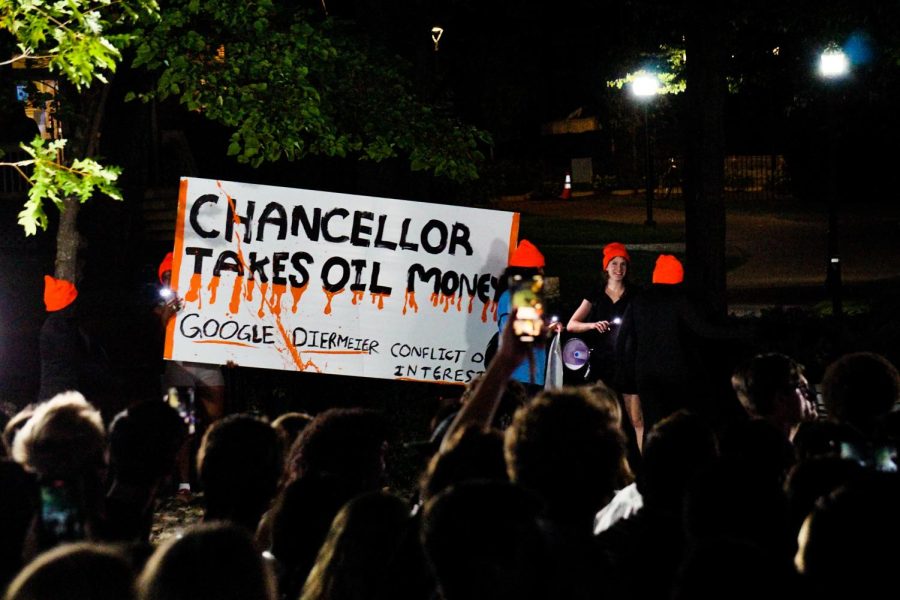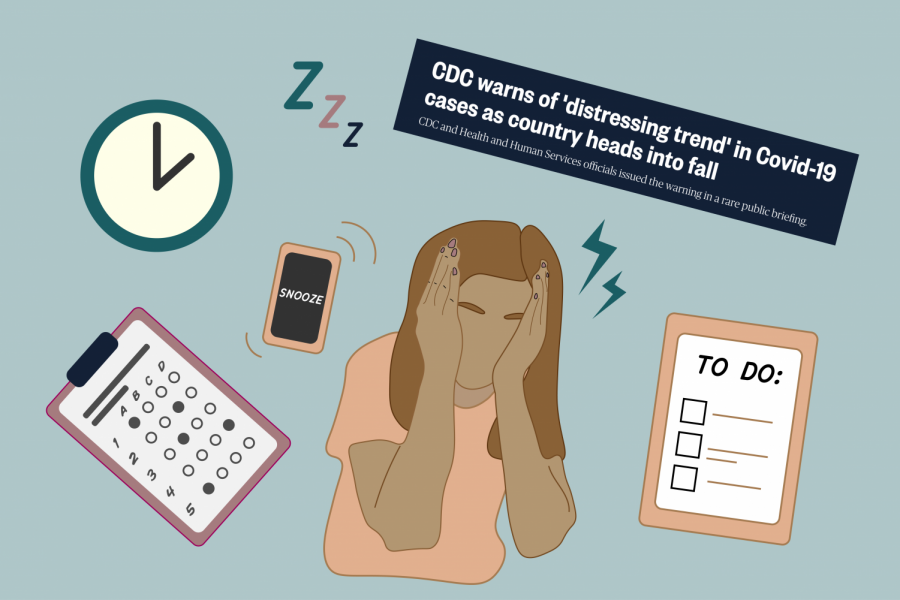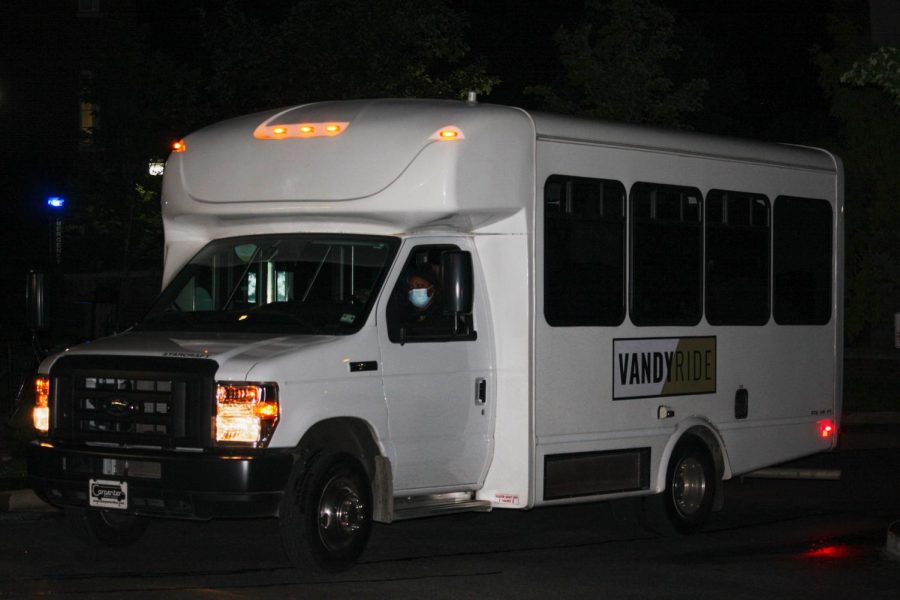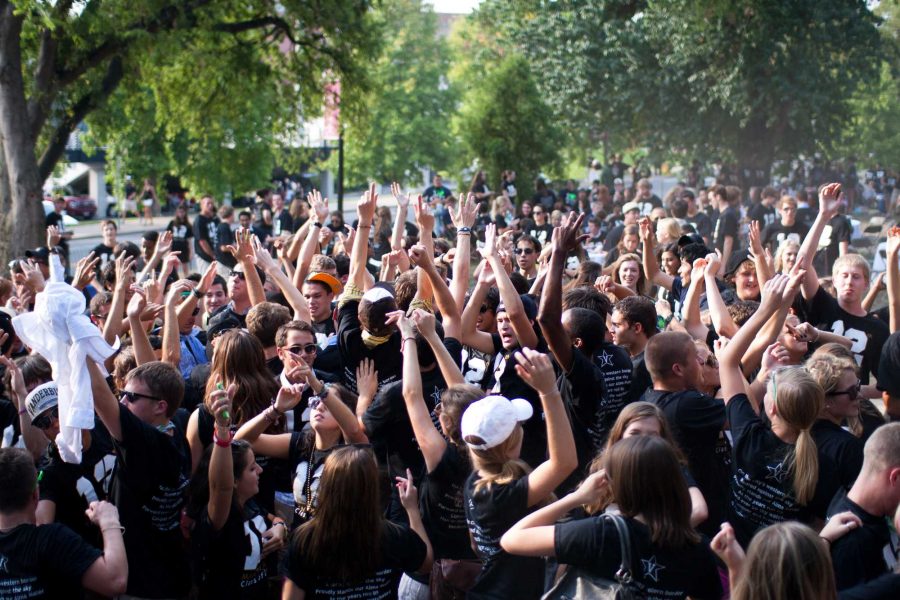A virtual town hall titled “Vanderbilt University: Next Steps for Return to Campus” hosted by incoming Chancellor Daniel Diermeier, Interim Chancellor and Provost Susan Wente and Vice Chancellor for Administration Eric Kopstain was held on the evening of Wednesday, June 17.
The town hall covered a variety of topics ranging from pre-arrival testing plans and updated campus resources to contingency plans and the collective responsibility of members of the Vanderbilt community.
“The plan has built a lot of flexibility, and very importantly we need to be able to deal with a possible reemergence or surges in the COVID-19 pandemic,” Diermeier said.
Diermeier stated that the most important guiding principles for the plan to address the COVID-19 pandemic were that it should address the complexity for re-opening, the need for prevention measures, the health and well-being of the Vanderbilt community and the potential for resurges in cases.
Academic & Campus Life
Wente detailed the campus-wide safety protocols that are to be followed by every student and faculty member.
Face masks/coverings will be and are currently required in all public spaces, both indoor and outdoor. In addition, those on campus must adhere to physical distancing of at least six feet, practice good hand hygiene, conduct daily symptom monitoring, follow posted signage and instructions and maintain healthy environments through cleaning and disinfection per Wente.
“It will be every single individual person’s responsibility to take care of each other,” Wente said.
According to Wente, educational design adaptations for the fall semester include new instructional technology packages in around 90 rooms, creating recording studios for faculty, leveraging existing video equipment in other classrooms as well as establishing a loaner laptop program for students and faculty. The university has identified over 200 additional sites for potential classroom usage and aims to de-densify these in-person spaces as well as centralize their location to optimize travel across campus.
Wente also stated that the university has not yet determined specific dates for the spring semester.
“We are assembling a working group and will start working on those plans now so that we will be able to announce that well in advance,” Wente said.
Additionally, Wente announced that this year’s family weekend would be canceled, a decision made in alignment with a recommendation to the administration from a COVID-19 working group.
Health & Well-being
Kopstain said that a COVID-19 testing center will be organized under the supervision of medical staff at the Recreation Center in a style similar to Flulapalooza in the fall semester. This will be conducted in a manner that still enables the usage of workout spaces, the second floor, the pool and practice fields.
“Testing at scale and having ongoing, scalable capabilities post-arrival we think is a must-have to achieve our on-campus residential living and learning mission,” Kopstain said.
Kopstain also stated that the university broke down the community into four broad categories for risk-based testing approaches including Strategy 1: high exposure staff and faculty (650), Strategy 2: undergraduate non-athletes (6,500), Strategy 3: student-athletes (350) and a “baseline strategy” comprised of faculty, staff, postdocs, graduate students, professional students, undergraduate students, and student-athletes (21,650).
According to Kopstain, the university has a detailed plan in place for students who may be exposed to the novel coronavirus.
“In a campus environment, quick contact follow-up will be key to reducing the spread, particularly in the undergraduate population,” Kopstain said.
Exposed students will have designated quarantine locations both on and off-campus while awaiting their test results from VUMC or a 3rd party provider. Scarritt Bennett is an off-campus facility not owned by the university which has 143 separate rooms for students awaiting test outcomes. Students who test positive (asymptomatic or symptomatic) will undergo isolation procedures that enable them to continue their education while being separated from those who are not infected. Blakemore House has the capacity for 142 positive student cases, said Kopstain.
The VandySafe app will have a dedicated COVID-19 symptom monitoring section where students will be able to conduct a self-assessment by responding to a Vanderbilt-specific questionnaire modeled after CDC guidelines, according to Kopstain. The app will then indicate whether users pass the screening criteria, or provide further instructions if they do not.
Kopstain concluded his portion of the town hall by announcing that Vanderbilt has established a call center for answering any questions pertaining to the fall semester. Students and parents can reach the call center at (615) 322-4357 from 8 a.m. to 5 p.m. CDT, from Monday through Friday.
Residential life
According to Wente, many questions have been asked regarding what life outside the classroom may look like.
“We are actively engaged in terms of thinking about how to offer the very best, full experience for our students,” Wente said. “We have a student-led virtual engagement planning group. We have our Dean of Students and Vice Provost for Academic Affairs actively working on this.”
Some of the problems being addressed by these groups and various individuals include how gatherings might take place, how to arrange common areas in accordance with social distancing and what the cleaning protocols will be. The Office of Student Accountability will be in charge of overseeing compliance per Wente.
In terms of housing, the university is using a multi-model plan that prioritizes optimizing resources, de-densifying and personalizing to specific student population needs per Wente.
The two housing plans are the single room model and the “family unit” model where roommates/suitemates are exempt from social distancing. For both models, the university is still deciding what the student to bathroom facility ratio should be. Further bathroom considerations include contactless fixtures, cleaning schedules and potential shower sign-ups, according to Wente.
Wente broke down the housing plan into its three cohorts of first-year students, upper-class students and student-athletes, and addressed what housing will look like for each group. Wente also added that all who want or need Vanderbilt-controlled housing will be accommodated through other real estate or hotel proposals.
Student-athletes will room only with other athletes. First-year student-athletes will room with other first-year student-athletes and receive a Commons House affiliation. Special protocols will be put in place for practice, travel and competition, per Wente.
Campus Dining will continue to serve the Vanderbilt community while supporting social distancing efforts per Wente.
“We will have mobile ordering options including Munchie Mart convenience stores and Suzie’s Cafes,” Wente said. “To support physical distancing and reduce congestion, we are going to have a lot of pick-up spots for dining. ”
Regarding how students and faculty will safely navigate campus, Kopstain revealed that the university will implement one-way and two-way paths across campus. These paths will take into consideration primary circulation routes, are flexible to change and could last 1-2 years. Kopstain also iterated that the university hopes to keep outdoor spaces open with signs to emphasize personal responsibility.
“The outdoor spaces of Vanderbilt’s campus are the wonderful canvas upon which our buildings are sited and connected,” Kopstain said. “We want our community to access and use these spaces in responsible ways.”
Shared responsibility
The Public Health Ambassadors program has been launched as a resource to help the Vanderbilt community navigate the many changes on campus. The first ambassadors selected and trained for the program are VUPS community service officers. The program will expand prior to the fall semester to include other individuals, according to Wente
“Our community cares for one another,” Wente said. “Our community wants to ensure and protect each other from this pandemic.”

